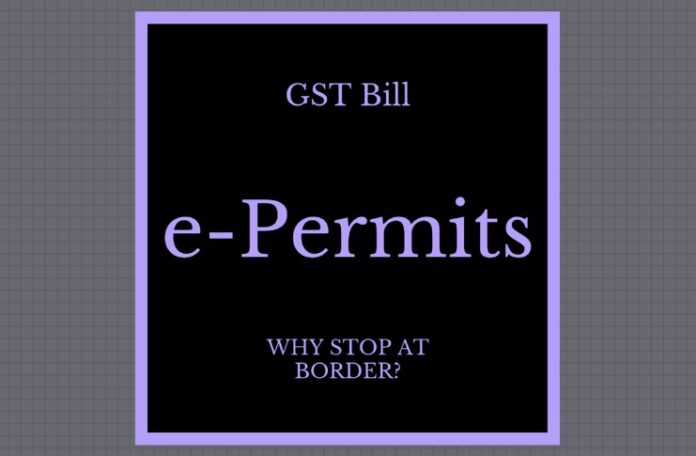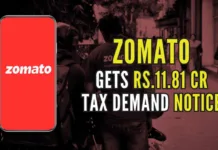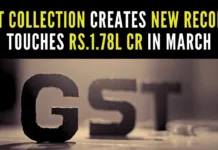
[dropcap color=”#008040″ boxed=”yes” boxed_radius=”8px” class=”” id=””]O[/dropcap]ne of the major benefits of GST, we were told, is that movement of goods across states will be smooth without the vehicles carrying the goods being stopped at checkposts, and this will save a lot of time and money in logistics.
The states argued that e-permits are an improvement over the paper permits, and so this won’t hurt the movement of goods.
However, a recent news item on GST is that, most of the states insisted that vehicles transporting goods should be stopped at checkposts at state borders and they should show their e-permits before being permitted to move on. And the Union Finance Minister had to yield, after trying his best to convince the states concerned otherwise.
The states argued that e-permits are an improvement over the paper permits, and so this won’t hurt the movement of goods. However, there are 3 major problems with even the e-permits.
The first problem is, stoppage and queuing of vehicles will, by itself, lead to wastage of a lot of time at the checkposts, defeating the purpose of GST to an extent.
Secondly, e-permits compute the time allowed for vehicles to complete their task and return. If they exceed this time, the vehicles would be imposed obscenely hefty fines (as already demonstrated). The amount of fine can’t be questioned because it’s all automated. This computation doesn’t appropriately reckon many factors such as adequate rest time for the driver, traffic delays, delays at checkposts & toll gates, delays due to breakdown of vehicles & heavy rains, etc.
Thirdly, checkposts are known to be dens of corruption. Commercial vehicles, whether cabs or for transport of goods, are made to pay substantial amounts as hafta, for no specific service or reason, for just being allowed to go. This has unfortunately become an accepted practice across the country. Anybody who protests is rounded up by the police patrol vans on false and trumped up charges.
[dropcap color=”#008040″ boxed=”yes” boxed_radius=”8px” class=”” id=””]H[/dropcap]ow is such a corrupt practice permitted to take place so brazenly? The inspectors at the checkposts get their postings paying bribes of the order of Rs.1 crore, because of the high amounts of bribes they can earn. A part of the bribe so collected from all the inspectors from across the state finds its way up to the top officials and Ministers. This is true of almost all the states.
A simple solution to this exists, in the form of digitisation of the e-permits, automatic detection of vehicles passing the sensors to be installed at the checkposts…
This explains why the state governments insist so much on stoppage of the commercial vehicles carrying goods (as well as cabs) to flash e-permits at checkposts, even after introduction of GST.
GST or No GST, cabs or goods vehicles, is there no way to prevent such open bribery?
A simple solution to this exists, in the form of digitisation of the e-permits, automatic detection of vehicles passing the sensors to be installed at the checkposts, and permitting them to go with just a momentary halt, if at all. Any vehicle not possessing valid e-permits can be detected and tax and penalty levied, as appropriate. Such an automated system works well in many countries, like Singapore.
The Central Government should ensure that this is just a temporary hiccup and is tackled in the best interest of the nation, as soon as possible. We can’t allow the nation’s progress to be sacrificed at the altar of corruption politics.
Note:
1. Text in Blue points to additional data on the topic.
2. The views expressed here are those of the author and do not necessarily represent or reflect the views of PGurus.
- How BJP can get 33%+ vote share in TN - April 1, 2024
- A transparent, equitable electoral funding alternative - March 19, 2024
- How TN BJP can come to No. 1 or No. 2 in 2024 LS polls - January 11, 2024











Thankfully, this issue is being addressed by the GST Council:
http://timesofindia.indiatimes.com/business/india-business/truck-queues-at-borders-may-end-soon/articleshow/57697659.cms
In Banking system s, Monetary transfers,are being carried upon,through RTGS/NEFT/E.NET/ DD/ ,instead of ,Physical transfers of money in cash. In this system, movement freely, hurdleless goes on,in any transactions/transfers of goods.Similarly, Goods movement across boarder ,would be also done easily, through exchange of transactions ref.through proper mechanism.This is mainly moto of Govt. for enrolling GST Law.Thanks.R.K.MAKHARIA.